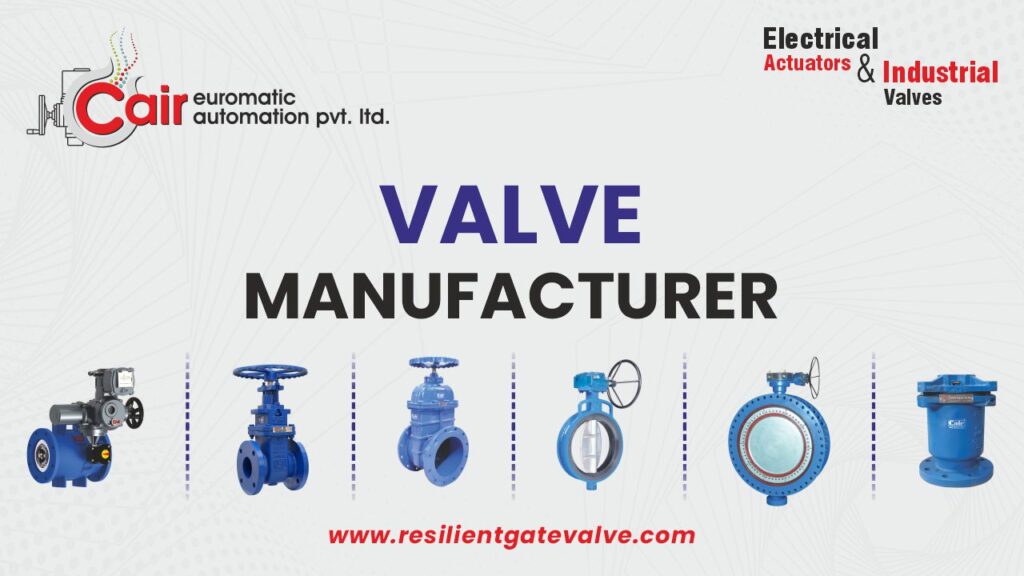Introduction to Solenoid Valves
Solenoid valves are an important part of modern industrial automation. These electromechanical devices are designed to control the flow of liquids or gases with precision. Whether in water treatment plants, chemical processing, HVAC systems, or manufacturing units, solenoid valves make operations faster, safer, and more efficient. Their ability to be controlled automatically makes them highly reliable for both simple and complex systems.
Working Principle of a Solenoid Valve
A solenoid valve works with the help of an electromagnet. When an electrical current passes through the coil, it generates a magnetic field. This field activates a plunger inside the valve, which either opens or closes the passage for fluid or gas. Once the power is removed, the spring inside returns the plunger to its original position. This simple mechanism allows for highly accurate on/off flow control, making solenoid valves a preferred choice in industries that demand precision.
Types of Solenoid Valves: Single vs. Dual
There are two main types of solenoid valves:
- Single Solenoid Valve – This type uses one coil to operate. When energized, the valve opens or closes, and when power is cut, it returns to its default position.
- Dual Solenoid Valve – As the name suggests, this design has two solenoids. Each solenoid can independently open or close the valve, providing better control and flexibility.
The dual version is especially useful in systems where two different flow paths or directions are needed, or when safety and backup control are important.
How Dual Solenoid Valve Operation Works
Dual solenoid valves are designed with two electromagnetic coils on either side. When one solenoid is energized, it shifts the valve in one direction, allowing flow through one path. When the other solenoid is energized, the valve shifts in the opposite direction, reversing or changing the flow path.
This arrangement allows for:
- Precise switching between two positions
- Fail-safe operation in case one coil fails
- Ability to handle more complex control tasks compared to single solenoid valves
Dual solenoid valves are widely chosen where system reliability is critical.
Applications of Dual Solenoid Valves in Industries
Dual solenoid valves are found in various sectors due to their versatility and reliability. Common applications include:
- Automation Systems – For controlling actuators, cylinders, and robotic movements.
- Water and Wastewater Plants – To manage flow distribution, treatment, and pressure control.
- Oil and Gas Industry – Used for safe handling of fuel, gases, and lubricants.
- HVAC Systems – Helps regulate heating, cooling, and air conditioning operations.
- Medical Equipment – Ensures accurate gas and fluid flow in medical devices.
Advantages of Dual Solenoid Valve Systems
Using dual solenoid valves offers several advantages:
- Higher Reliability – With two solenoids, operations continue even if one fails.
- Flexible Control – Allows bi-directional flow or two-way switching.
- Safety Assurance – Commonly used in emergency shutdown systems.
- Durability – Built for heavy-duty and continuous industrial use.
- Automation Ready – Can be easily integrated into PLC-based control systems.
Key Factors to Consider When Choosing a Solenoid Valve
When selecting a solenoid valve for your industry, keep these points in mind:
- Application Requirement – Type of fluid, gas, or pressure level.
- Material of Construction – Brass, stainless steel, or plastic based on usage.
- Voltage and Power Rating – Ensure compatibility with your system.
- Flow Capacity – Correct valve size to handle required flow rate.
- Reliability & Maintenance – Choose a design that is easy to maintain and long-lasting.

Trusted Dual Solenoid Valve Manufacturers in India
India has emerged as a hub for high-quality valve manufacturing. Cities like Ahmedabad, Pune, and Chennai are home to many trusted valve makers. Reliable manufacturers focus on precision engineering, robust material selection, and advanced testing to meet international standards.
When choosing a dual solenoid valve manufacturer in India, always look for:
- ISO certifications and quality approvals
- Proven industry experience
- Customization capabilities
- After-sales support and maintenance services
Maintenance and Safety Tips for Solenoid Valves
Proper care ensures long-lasting performance of solenoid valves. Some tips include:
- Regularly clean valve components to prevent clogging.
- Check electrical connections and coils for overheating.
- Use the valve only within the recommended pressure and temperature range.
- Schedule periodic inspections for wear and tear.
- Replace damaged seals or coils immediately to avoid downtime.
Conclusion: Why Dual Solenoid Valves Are a Reliable Choice
Solenoid valves, especially dual solenoid systems, have become an essential part of modern industry. Their reliability, precision, and automation capability make them the perfect choice for flow control in critical applications. Whether for water, air, fuel, or chemicals, a dual solenoid valve ensures safe and efficient operation.
By selecting the right manufacturer in India and following proper maintenance, industries can enjoy long-term performance and peace of mind with dual solenoid valve systems.



